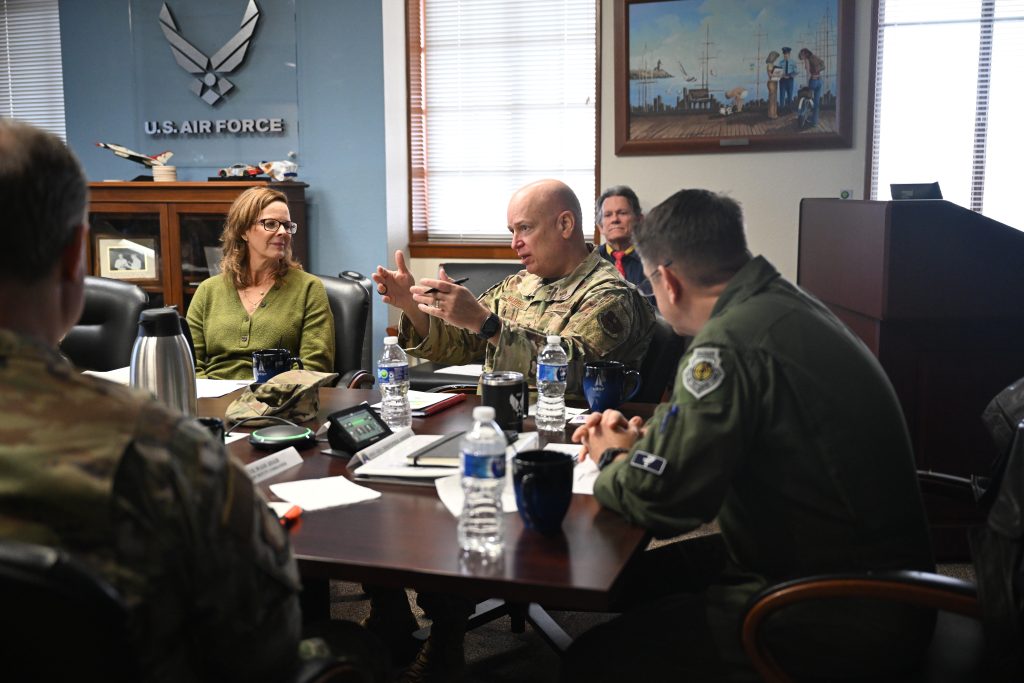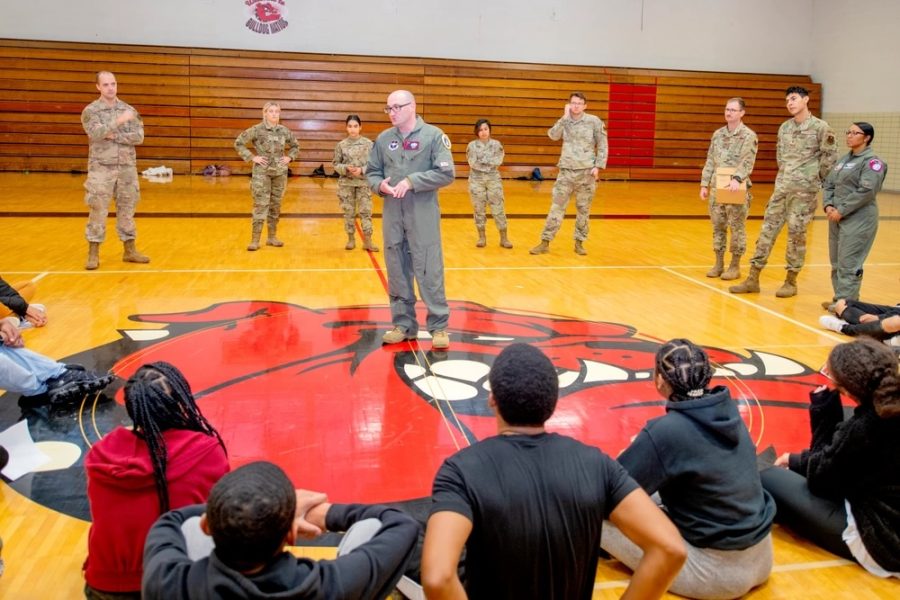As the Air Force Recruiting Service works to increase its presence in new parts of the country to help solve its recruiting challenge, its leader wants to make sure recruiters working far from military medical facilities have access to health care and are reimbursed for long travel times to and from doctors’ visits.
“We charge our recruiters with the critical job of finding youth willing and able to serve and protect our nation,” AFRS commander Brig. Gen. Christopher Amrhein said in a recent press release. “In turn, it’s our responsibility to support these Airmen and their families to the absolute best of our ability.”
On Jan. 11, Amrhein met with Defense Health Agency and TRICARE officials to develop strategies for some of the issues recruiters encounter when located far from a base, including:
- Staffing shortages both in local communities and across the Military Health System
- Outdated “find a doc” directories, where providers who no longer take TRICARE are often listed
- Lack of clarity on TRICARE benefits for service members far from military health facilities
- Costs and delays in home-delivery prescriptions
The release noted that broader challenges, such as the health care worker shortage, will take time to resolve, but DHA and AFRS want to start with low-hanging fruit, such as improving awareness and ease of use for TRICARE Prime Remote, a no-fee plan for active duty and some activated reserve component members and families who are more than 50 miles or one hour’s drive from a military hospital or clinic.
“The drive time standard is crucial for recruiters stationed in traffic-heavy cities like Chicago, where an hour drive can quickly extend to two or three,” the release said.
Amrhein wants to make sure recruiters understand the resources available to them through Prime Remote, including Prime Travel Benefit, which reimburses participants for health care-related travel expenses. Starting in February, AFRS will hold monthly TRICARE briefings for Air Force recruiters in training and their families, though the exact date and time for the first brief has not yet been scheduled, a spokesperson told Air & Space Forces Magazine. About 1,500 of AFRS’ total 2,700 recruiters are stationed away from a military installation, she added.
“Our aim is to provide our recruiters with health care information prior to their first assignment,” Amrhein said in the release. “We want them to feel supported from the start.”
In the meantime, AFRS also wants to identify the places “with the greatest access or provider directory challenges,” so that DHA can focus its improvements on those areas.

T-5 Refresh
Though the Jan. 11 meeting was focused on Air Force recruiters and their families, the takeaways could help DHA understand the challenges all remote military families face, a spokesperson for Defense Health Network Central, DHA’s largest health care network, told Air & Space Forces Magazine.
“The lessons learned and solutions implemented by DHA and the Air Force Recruiting Service will improve access to care not only for Air Force recruiters, but for all service members and their families in remote locations around the world,” the spokesperson said.
One change coming soon is a new TRICARE contract known as T-5 which is scheduled to begin in 2025. The new contract is meant to enhance provider network flexibility, boost telehealth resources, streamline referral transfers, and other improvements, according to a TRICARE release.
Many of these changes could be moot without up-to-date provider directories, which DHA hopes to achieve through “frequent and large-scale audits,” the DHA release said.
It will be a long road, as there are over 800,000 participating providers in just the TRICARE East region. To speed things along, T-5 will include a link for beneficiaries to report provider discrepancies on the TRICARE West website. As of now, only TRICARE East has that feature.
The upcoming changes will arrive amid a wider reckoning in the Military Health System, many of whose 9.6 million beneficiaries reported long wait times and staffing shortages at military treatment facilities.
“The need to stabilize the MHS is clear,” an MHS official wrote in a statement. “The realignment of medical personnel and the volatile health care economy of the past three years created challenges in the care of beneficiaries.”
The statement promised a review of all medical manpower and staffing by June 30, as well as a “limited redistribution” of providers to a few key locations no later than July 1.
“We are going to rebuild that capacity first to earn trust from our beneficiaries.” Dr. David Smith, the deputy assistant secretary of defense for health readiness policy and oversight, said in a statement.
